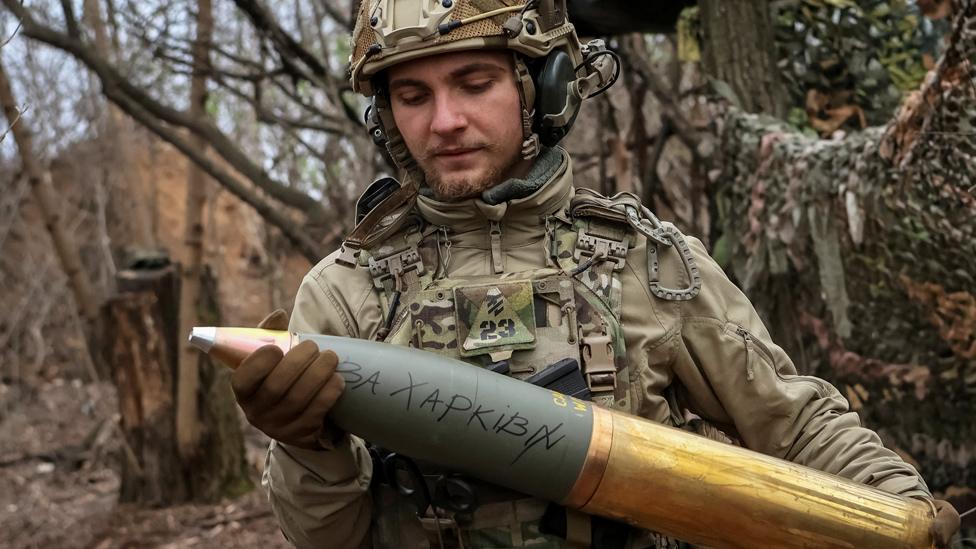After their PM halts Ukraine aid, Slovaks dig deep to help
- Published
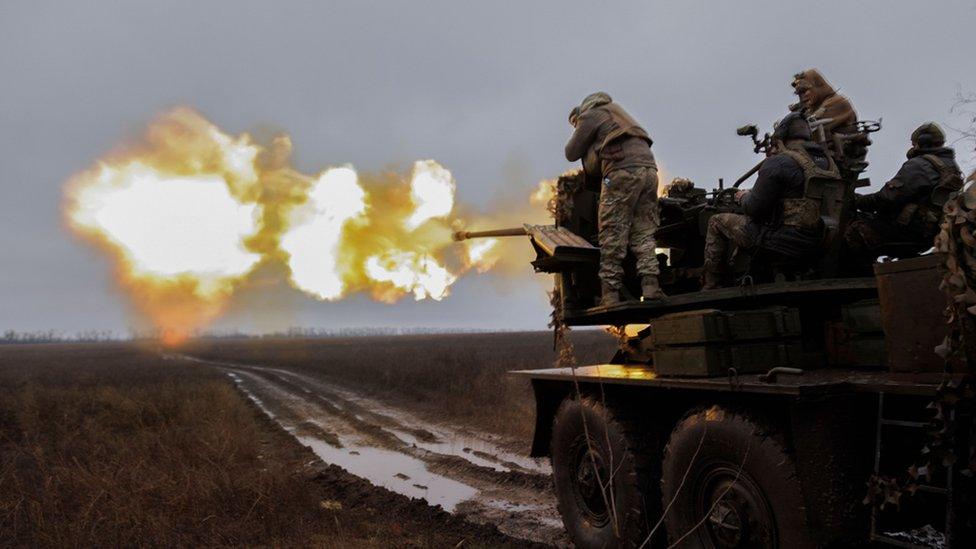
A crowdfunding campaign in Slovakia to buy artillery shells for Ukraine has exceeded its target of €1m (£850,000), less than 48 hours after it was launched.
The campaign is a response to the Slovak cabinet's refusal to join an initiative by the Czech government to buy up hundreds of thousands of shells for the Ukrainian armed forces.
"We have to drive Putin out of Ukraine. We have to defeat him," said Otto Simko, a Holocaust survivor and veteran of the 1944 Slovak National Uprising against the Nazis. Aged 99, he helped kickstart the campaign to challenge the government's policy.
"I lived through the Second World War. I fought in it. I can tell you there was no point negotiating with Hitler and there is no point negotiating with Putin," Simko told the BBC from Bratislava.
It was a random conversation the Slovak veteran had with a journalist and a philosopher that led to the idea of crowdfunding Slovak help for Kyiv.
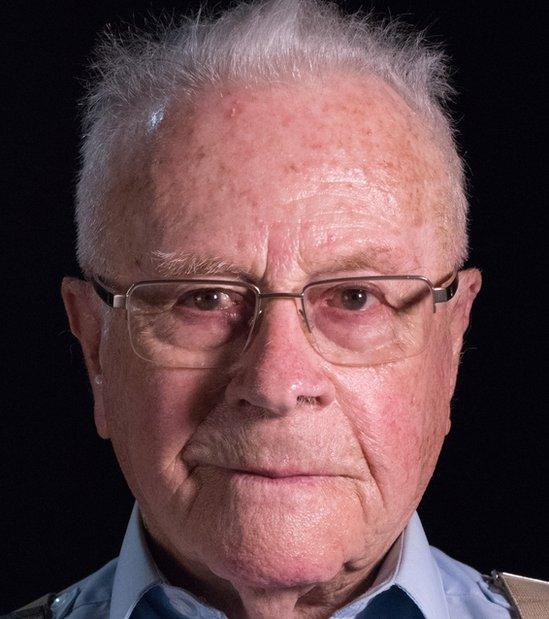
Otto Simko who's 99 has dipped into his pension to pay into the fund

In essence it allows Slovaks to bypass the populist-nationalist government of Robert Fico, who came to power in October pledging not to send "one more round of ammunition" to Ukraine.
For months Ukrainian forces have struggled to defend their front lines from the Russian advance because of a shortage of shells, rockets and air defences.
But Mr Fico has flatly refused to join about 20 countries that have signed up to the Czech operation to procure large quantities of artillery ammunition on the global arms market.
The Slovak prime minister says the West's policy of arming Ukraine is only prolonging the conflict, and Kyiv should instead lay down its arms and sue for peace with Moscow.
The crowdfunding campaign has provided an outlet for those Slovaks who do not agree with him. By Friday afternoon, more than 32,000 people had donated more than €2m since it launched on Tuesday afternoon. The money will go directly to the Czech government's initiative.
"We're really pleasantly surprised at the huge force it's awoken," said Zuzana Izsakova from the "Peace to Ukraine" initiative, which is running the effort in conjunction with the Czech-based Endowment Fund for Ukraine.
"It's a sign of the resistance of Slovak society against the government and the foreign policy of Robert Fico," she told the BBC.
The campaign, running under the slogan "If The Government Won't - We Will", would continue even now it had met its target, she said.
So far Mr Fico has not commented publicly on the campaign. However, Defence Minister Robert Kalinak told the Markiza TV station that Slovakia was a democracy and people were free to do what they wanted.
His government was working instead on providing Kyiv with assistance such as demining equipment, he said.
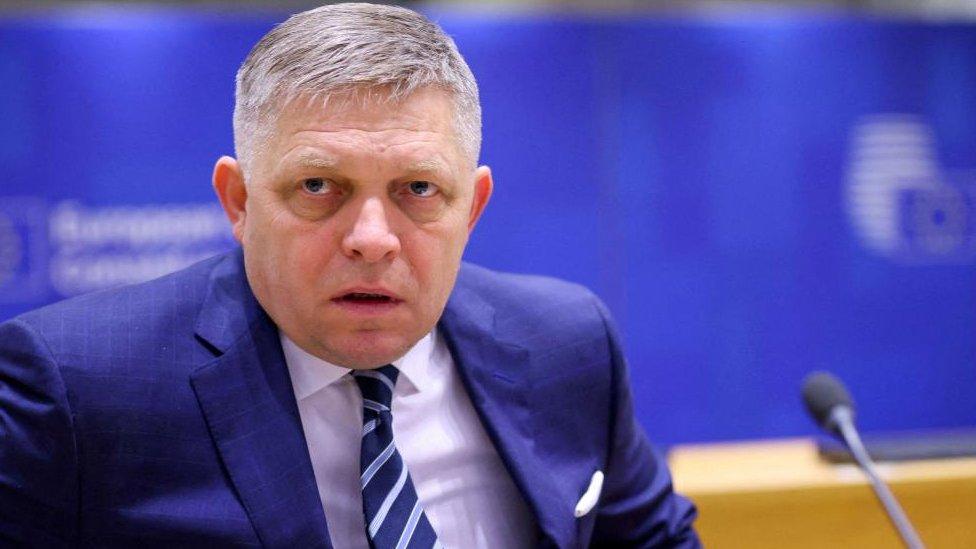
Robert Fico has halted Slovak military aid to Ukraine but insists he wants to be a "good, friendly neighbour" to Ukraine
The Czech ammunition initiative sees Prague acting as a middleman, combining extensive defence contacts dating back to the Cold War with money from EU and Nato partners to procure ammunition for Ukraine's shell-starved artillery batteries.
The scheme has been lauded by allies including President Joe Biden, at a time when Ukraine military aid has been mired for months in Congressional bickering and the EU's own ammunition pledges have fallen far short.
Czech Prime Minister Petr Fiala said on a visit to Washington this week his country had so far signed contracts for 180,000 rounds and was securing the purchase of 300,000 more, following substantial pledges of money from Germany, the Netherlands, Denmark and others.
The first shells would arrive in June, said Mr Fiala.
However, the project is shrouded in strategic ambiguity, and other Czech officials have suggested tens of thousands have already arrived on the battlefield.
It is also unclear which countries are providing the shells, with unconfirmed claims that some of them enjoy friendly relations with Moscow.
The Czech government says up to 1.5 million rounds could be available on the global market if the funds can be secured.
Otto Simko said he had not hesitated to dip into his pension to help fund what he said was Ukraine's battle against totalitarianism.
"Remember [Neville] Chamberlain. His idea that offering Hitler the Sudetenland would bring peace - it turned out to be a complete illusion," he told the BBC.
"Our government is doing exactly the same. Give him the Donbas, just as long as there is peace. Give him Crimea, just as long as there is peace. It's a complete illusion," he went on.
"If we don't defeat Putin he will be a threat. Not for the two or three years that I have left on this Earth, but to my grandchildren and great-grandchildren, to Slovakia, and the whole world."
Related topics
- Published17 April 2024
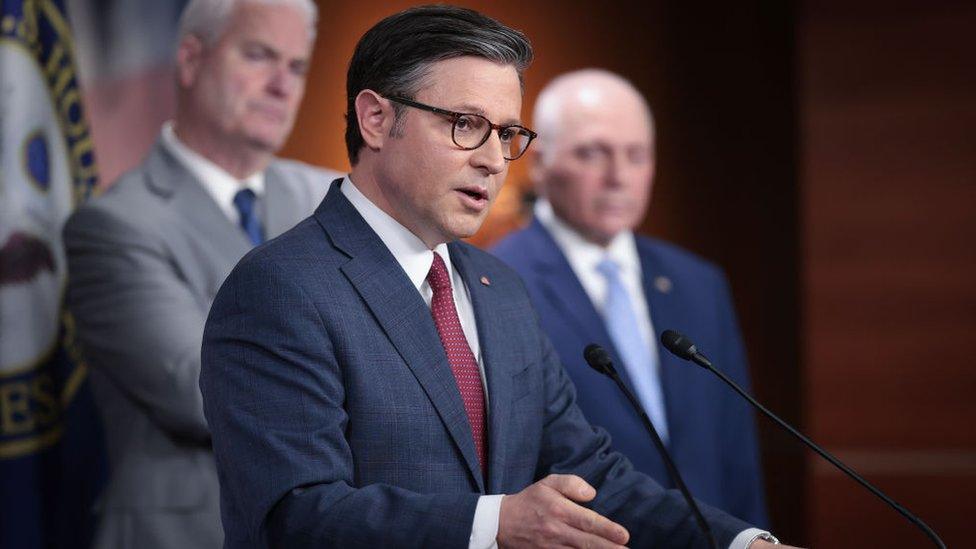
- Published18 April 2024
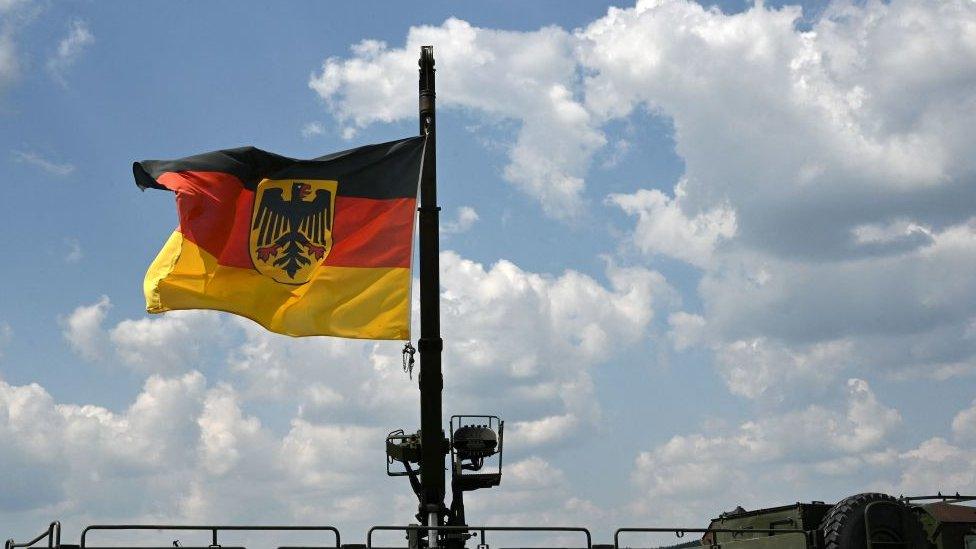
- Published18 April 2024
